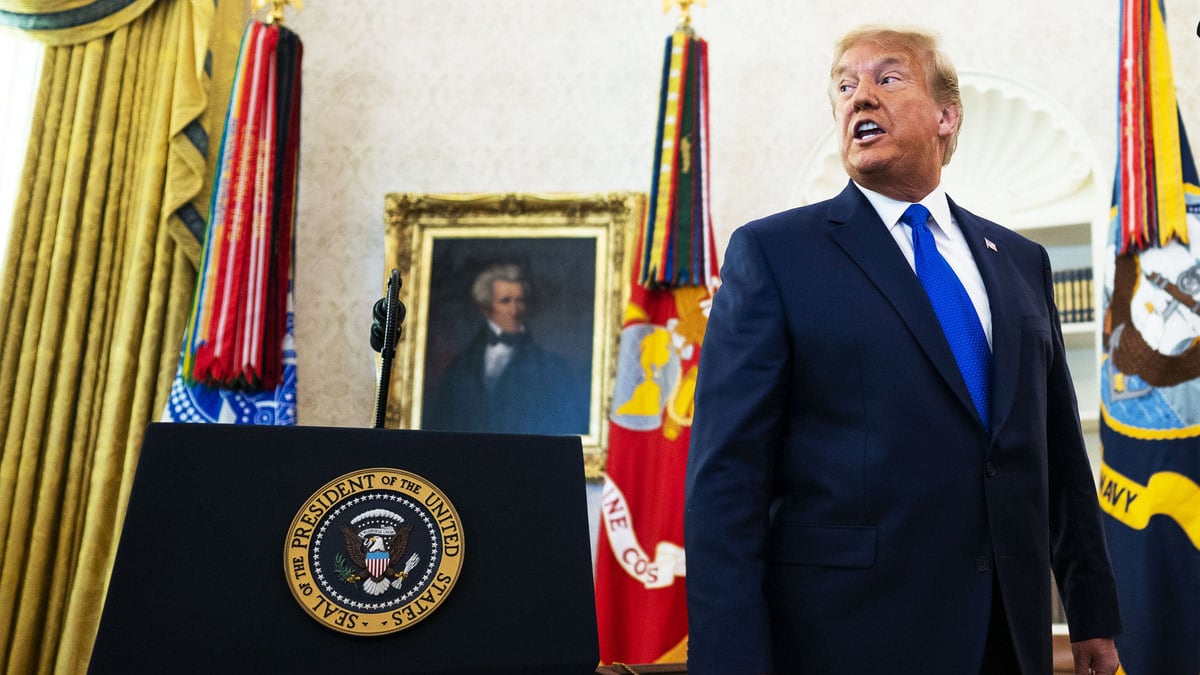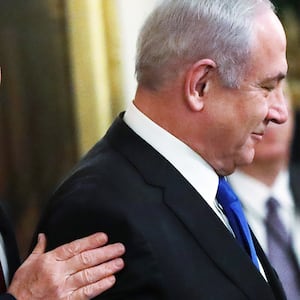Americans used to argue about foreign policy strategy as part of the general debate on politics. Some aspects of the argument were easy to predict along ideological lines, and many others were not. Conservatives were gung-ho about supporting the Contras, liberals less so; liberals were eager for a Panama Canal treaty and early sanctions on apartheid South Africa, conservatives much less so. On the other hand, debates about immigration and free trade used to cut across party lines, as did the long-running argument about the proper balance of priorities in America’s engagement with China.
This combination of ideological and non-ideological debate about foreign policy ended somewhere in the 1990s, and was replaced by a discussion centered entirely around the personality of the president and the people whose politics were organized around hating him. This has now been the case for four consecutive presidencies and it has made for an unusually shallow foreign policy debate in a country that needs a mature approach to global affairs. First came the obsessive Clinton haters, then the Bush haters, then the Obama haters, and finally the Trump haters. Foreign policy was an extension of whatever side of the organizing principle you happened to fall on.
This had real consequences beyond the cable news talk shows and op-ed pages. It gave birth to a predictable series of missteps in each new administration’s first year as newly empowered foreign policy hands pursued Anything-But policies. Anything-But-Clinton for the incoming Bush Jr. crowd, Anything-But-Bush for the new Obama administration, and Anything-But-Obama for Trump.
ADVERTISEMENT
Trump junked the Paris climate accord without ever being able to articulate why except that it harmed Obama’s legacy, and his reckless brinkmanship with North Korea was supposed to highlight Obama’s weakness but never amounted to more than reminding people precisely how difficult the dilemmas were. Obama’s acquiescence to Iran’s brutal crackdown in 2009 was largely governed by a desire to be seen as too smart for Bush’s “freedom agenda,” and the pointless series of public spats with Israel that same year were supposed to demonstrate how “daylight” between Israel and the United States would advance diplomacy in the Middle East. For all the backing this approach had from peace process experts, it left the Obama administration as the only one in half a century with no notable achievement on Arab-Israeli peace. Most disastrous of all was the cavalier approach the early Bush administration approach took to the threat of Islamist terror in its first nine months in 2001, despite (and possibly because of) the priority that the outgoing Clinton administration attached to the problem, and to al Qaeda specifically.
In all three cases, new administrations rode into power on a wave of resumes from opposition think tanks and media organs who had just spent eight years reflexively opposing a president’s foreign policies, desperate to prove that an obviously smarter take would yield better results. All three administrations wasted at least a year on these reverse ego trips, and on some issues never recovered from initial mistakes.
Joe Biden will face similar pressure to make some Anything-But-Trump moves when he comes into office on Jan. 20, particularly on issues like the Iran nuclear agreement which has attained a certain totemic value for Obama acolytes—less on its merits and more because it is seen as upsetting the people in Washington they most resent for having been right on all the issues they were wrong on.
If there is one guideline that should govern the incoming Biden administration’s choices it shouldn’t be so much Anything-But-Trump but Anything-But-Anything-But. There is no need for a purifying purge of the perceived errors of the previous administration to placate a domestic constituency. And there is no need for a bunch of irresponsible pronouncements about not repeating earlier mistakes that then have to be embarrassingly backtracked when the president discovers the problems he saw as simple in a Times op-ed are a lot more complex when they make it to the Resolute Desk.
Hopefully the temptations for an Anything-But first year of foreign policy will be less than they were in the three previous rounds. Joe Biden is an old foreign policy hand with nothing to prove, quite unlike most recent presidents. Trump served only one term, so there is no eight-year build-up of resentment festering in opposition think tanks which needs to be salved as was the case at the end of the Clinton, Bush Jr., and Obama presidencies.
Moreover, Trump had some notable foreign policy successes that were achieved by ignoring the foreign policy “blob” (and the tired wisdom of people like the guy who gave us the term). His administration has brokered three Arab-Israeli peace agreements which the blob struggles to denigrate by inventing principles on the fly that don’t stand up to the most basic historical scrutiny. The maximum pressure policy on Iran means that any new deal will include more long-term limitations on its nuclear weapons program than the JCPOA had, to say nothing of finally addressing other outstanding issues on which the previous agreement granted Iran a free pass. The draw-down in Afghanistan means the next administration can finally end America’s longest war. America’s NATO allies are finally beginning to approach the alliance guideline of spending 2 percent of GDP on defense: in 2014 only Britain and Greece did, but now 10 member states do.
Most importantly of all, Trump has ended the automatic consensus in favor of free trade among foreign policy elites and practitioners after decades of that approach hollowing out the American middle class. A new discussion on this and on America’s relationship with China might just constitute this administration’s biggest contribution to American foreign policy making. Biden would be remiss to spend a year blindly reversing the foreign policy commitments of the outgoing administration before getting down to business.
In four years in the White House, Trump did enough damage to keep Biden busy domestically. Abroad, he leaves a mixed record which Biden should carefully build on.







